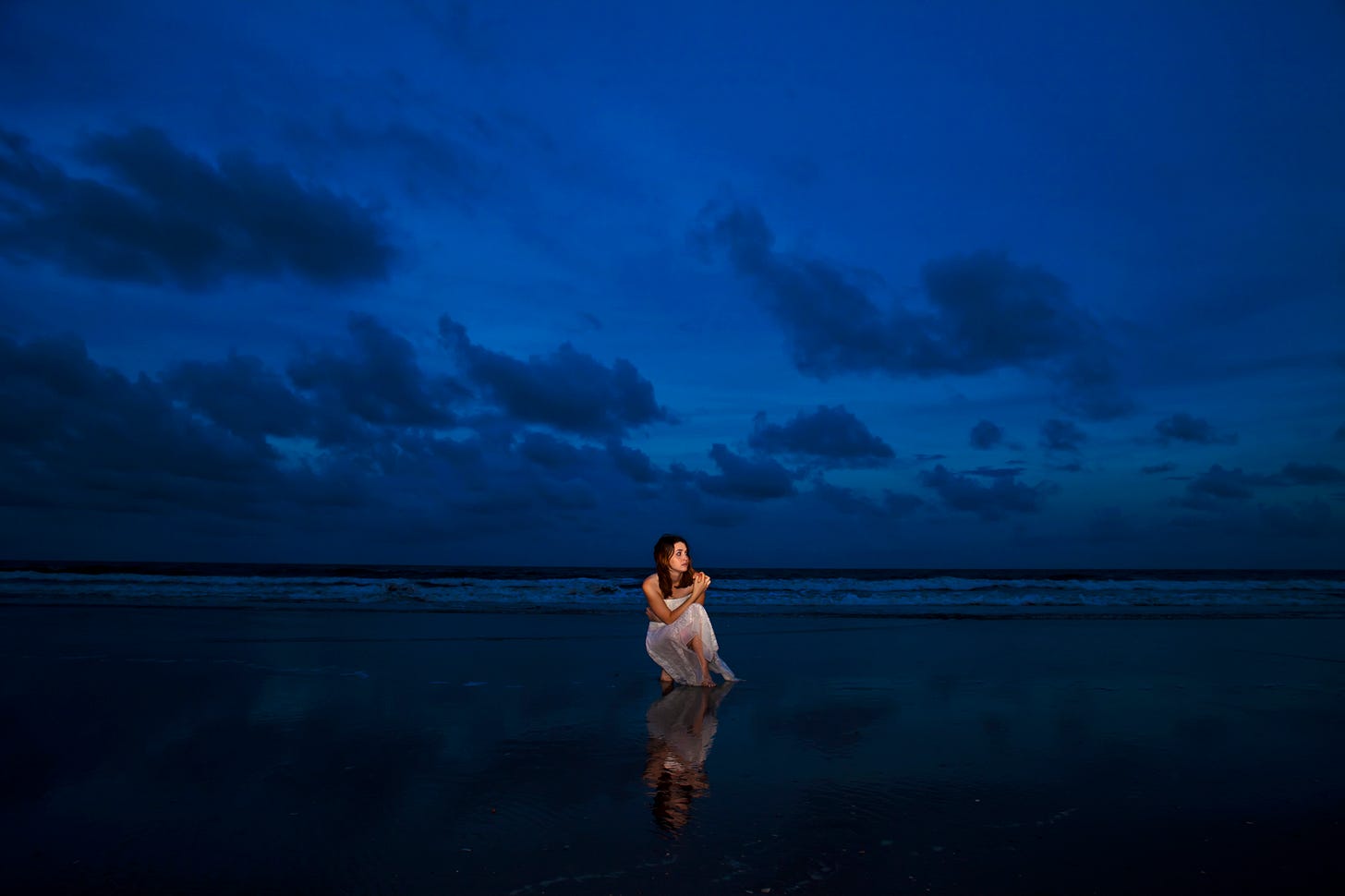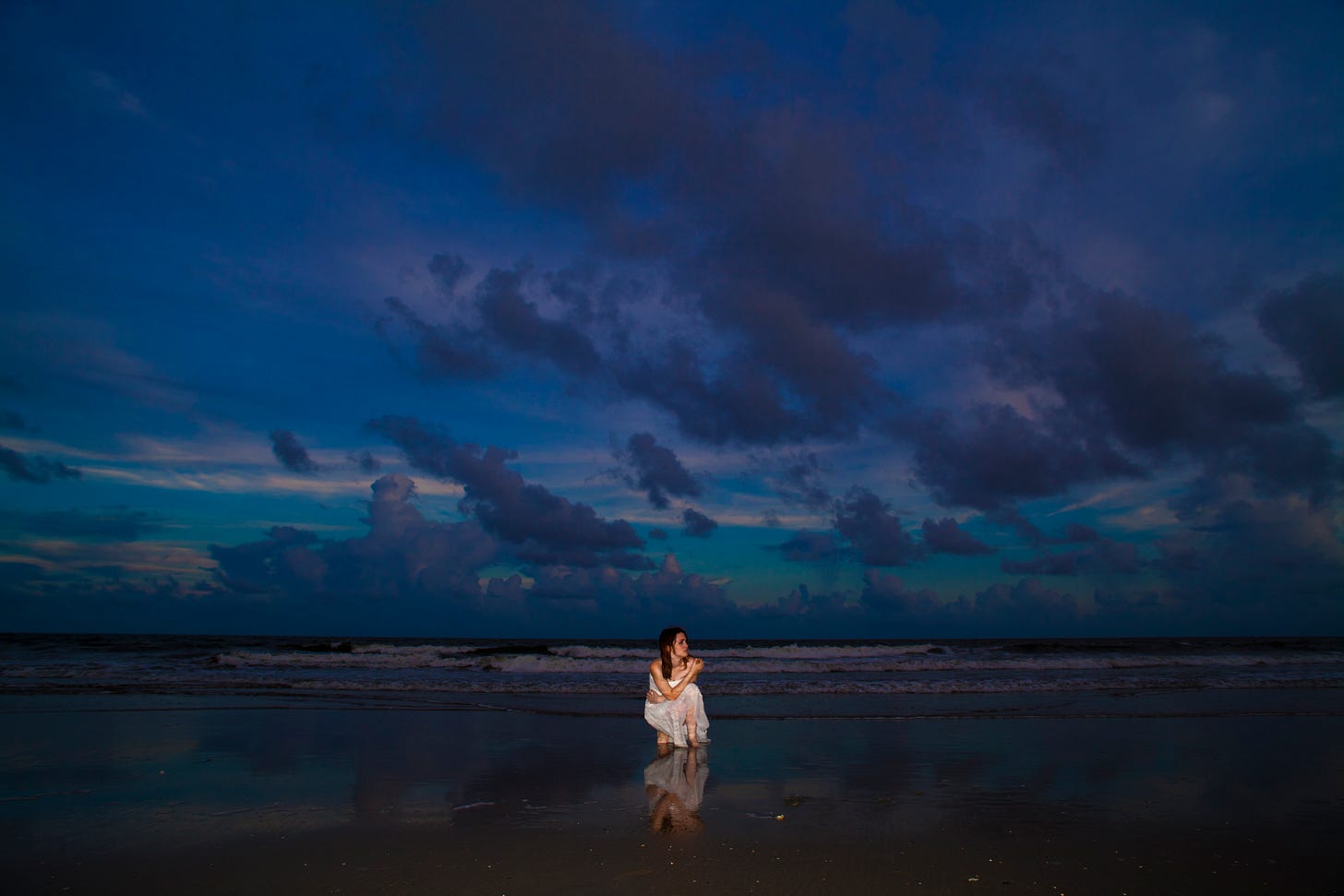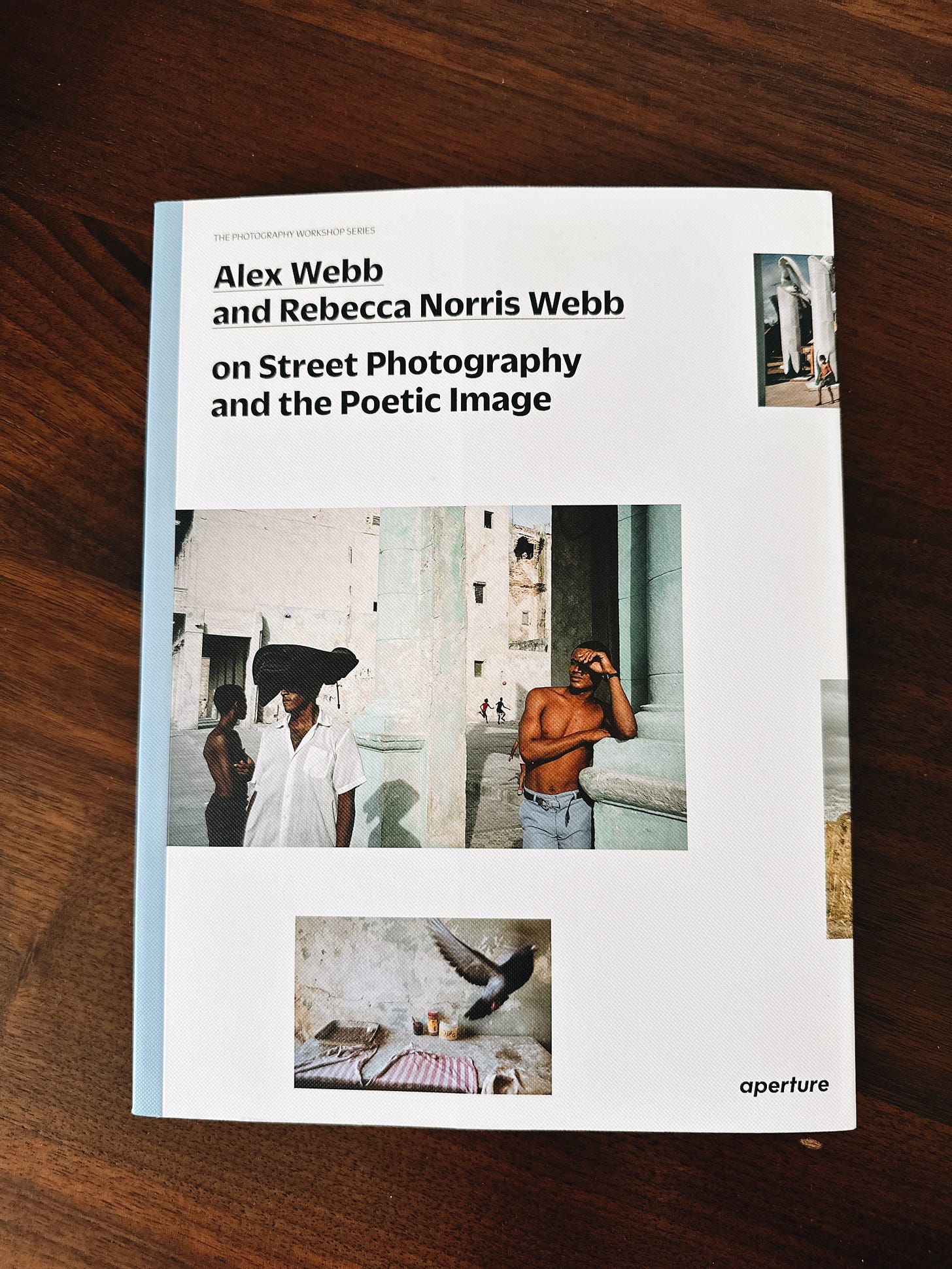Time as an Editor
And why you should never delete anything.
I think I inherited this trait from my grandfather because there are certain things I’ll never get rid of. He kept everything to the point that it was a bit of an issue. But I can’t fault him because I get it to a certain degree. Photographs are certainly one of those things that I keep. I never ever, no matter what, delete RAW files. I have everything from when I first started in 2012. There are maybe a few photos that I’ll never see since I was using iPhoto back in 2011, but honestly that’s fine. Those can die.
I thought this was a very normal thing that photographers did, but I’ve learned recently that this is a lot less uncommon than I thought. Which truly shocked me. It sends shivers down my spine, thinking about if I didn’t have access to a certain set of photos from years ago. Even if I never do anything with them, I like knowing that I could.
There have been plenty of instances when I remember a set of photographs and pull them up and take a look, and then suddenly discover there were a few of the RAW files I never edited at the time but end up really liking upon the second, much later, viewing.
So, let’s back up a little bit. Time can be an editor even a day later, or a week later. When I was in art school, the professor who taught me nearly everything I know gave us an assignment where I shot the image below, and I thought this image was the best one of the set. Like by a lot. To the point where I was fighting for my life in that critique. But her biggest critique was that the horizon line was hitting her at a bad spot. It went too much through her neck.
She then asked to see all of the outtakes, and I was not happy about it. I thought there was no way there was a better version of this photograph from the set…
But then she pulled this one up (below) and said this one was a lot better than the photograph above. At the time, I still didn’t believe it, and I agreed to disagree. it wasn’t until 5 or 6 years later that I randomly came across the set again on my old hard drive and thought, you know what… she was right. Not only was the horizon line better, but the sky was also better. Like she said. This time, there was more texture in the sky, and the horizon line went perfectly through her eye line.
So I bring this story up because it was a light bulb type of moment where I realized photography and the things you create could evolve and mean something different to you weeks, years, or decades later. I think this reinforces my theory that I can not delete any of my photographs. Even if I’d made dozens of better photographs since then, this exercise wouldn't have taught me this lesson otherwise.
I was gifted this incredible book for Christmas that Apurture put out called “Street Photography and the Poetic Image” written by two of my favorite photographers, Alex Webb and Rebecca Norris Webb. There is a section in the book titled “Time as an Editor,” and I reinforced this theory yet again.
Time is often the best editor. How you perceive your work the day after you photograph is very different from a week later, and significantly different from three weeks later-or three months. Time helps get rid of those sentimental attachments to a photograph: "I really liked this person I photographed so the picture must be good" or "I worked very hard on this picture so it must be successful." Time gives you the distance necessary to see the work more clearly.
In early 2001, after twenty-six years of photographing along the U.S.-Mexico border, I finally felt ready to put the project to bed. I selected what I thought were my most successful photographs from many trips over the years, starting with black-and-white images from the 1970s to my final trip in 2001.
As I played with the little prints-pairing them, sequencing them, seeing just how they spoke to one another and how they spoke to me—it became clear that a photograph was missing. I remembered one I'd taken of a group of Mexicans I'd traveled with as they illegally crossed into California. I'm not sure why l'd largely ignored this photograph twenty-two years earlier. Looking back, perhaps I was so close to the age of these young Mexican men that I couldn't perceive their vulnerability as I do now. — Alex Webb
He obviously summarized this exact theory much better than I could, and he has the advantage of having decades in between his work that really separates things by a few more years than I can, but still, I think it’s an important lesson.
If you are one of the people who don’t keep everything, I’d love to hear the reason why. In the year 2024, hard drive storage is so cheap, even from a decade ago; that’s a big reason that I really can’t wrap my head around why you wouldn’t keep everything. Whether that be deleting old sets altogether or deleting “outtakes” of new work you make and then only editing the “intakes.” It seems so bizarre to me, but I’d love to start a discussion on this.
Another angle to this topic is allowing your work to breathe when you’re actively working on it. I am generally a very impatient person. That’s a big reason I switched to mainly shooting digital on the street. Because when I get home I want to immediately look at the photographs I made. I needed to reassure myself that it was worth walking for miles and sweating in the South Carolina heat. Obviously, that’s the wrong mindset to have, but it’s the thought I often have when I get home. What I’ve tried to do more of is simply drop the photographs from my camera onto my desktop and not look at them for a while. I have a good number of photos I’ve made from the past few months that I’ve yet to look at.
I think using time as an editor like this will allow you to make better selects to begin with. With street photography, in particular, there is so much adrenaline and emotion involved when making photographs that when you nail something technically or capture a moment that was gone in a split second, you frame it correctly, or whatever it is, it’s so easy to say “now that was it.” As photographers have been saying for decades, getting something technically right does not make it good, and capturing a moment that was difficult to capture also doesn't make it good. But it’s easy to carry a lot of emotional bias to certain street photographs because we always want that one trophy from the day to show off or pat ourselves on the back for capturing.
But using time as an editor, the further you’re detached from certain moments or people, the better you can objectively see if that photo falls flat or if it hold up. Maybe a few months later that photo is still good.
I even try to do the same with client work. Usually, I do my selects pretty quickly after the shoot and then my edits shortly after that, but what I am usually looking for a few days later is the edit. Rarely do I select an outtake from client work that I then want to include in my final selects, but I give the edits and colors a few days to breathe and come back later. I then can see these small flaws that I missed during my first round of editing, or I see things that I want to tweak altogether. It’s been a game changer for me in terms of how happy I am with photographs that I deliver to clients.
So my advice to you today is, please keep your photographs. You never know what you might discover years or decades later when you stumble upon an old hard drive. It’s amazing what time away from your own work could do.
I’ve turned on comments for free and paying subscribers on this post. Let me know you’re thoughts on all this and if you delete or keep everything. I would love to hear from you all.






This was a really fun read bro! So good. I'm terrible about deleting stuff, and I need to get better at holding onto it. Like you said, storage has never been more accessible, so there's really no excuse! Hope you're doing well!
I think not deleting any photos ultimately makes your entire experiential photo experience more cumbersome.
I’m all for deleting the 23 other shots of the place in that exact spot and angle. Duplicate shots have got to go. The occasional photos where eyes are closed or some other element in the photo looks off, I’m all for deleting.
Also keeping all the photos, particularly raw photos isn’t just about the storage, it’s about the computer you are reading the photos on, the photo management application you are using for those raw photos as well.
Anyways, I’m not sure if I’m completely agreeing with you but also not disagreeing with you completely.